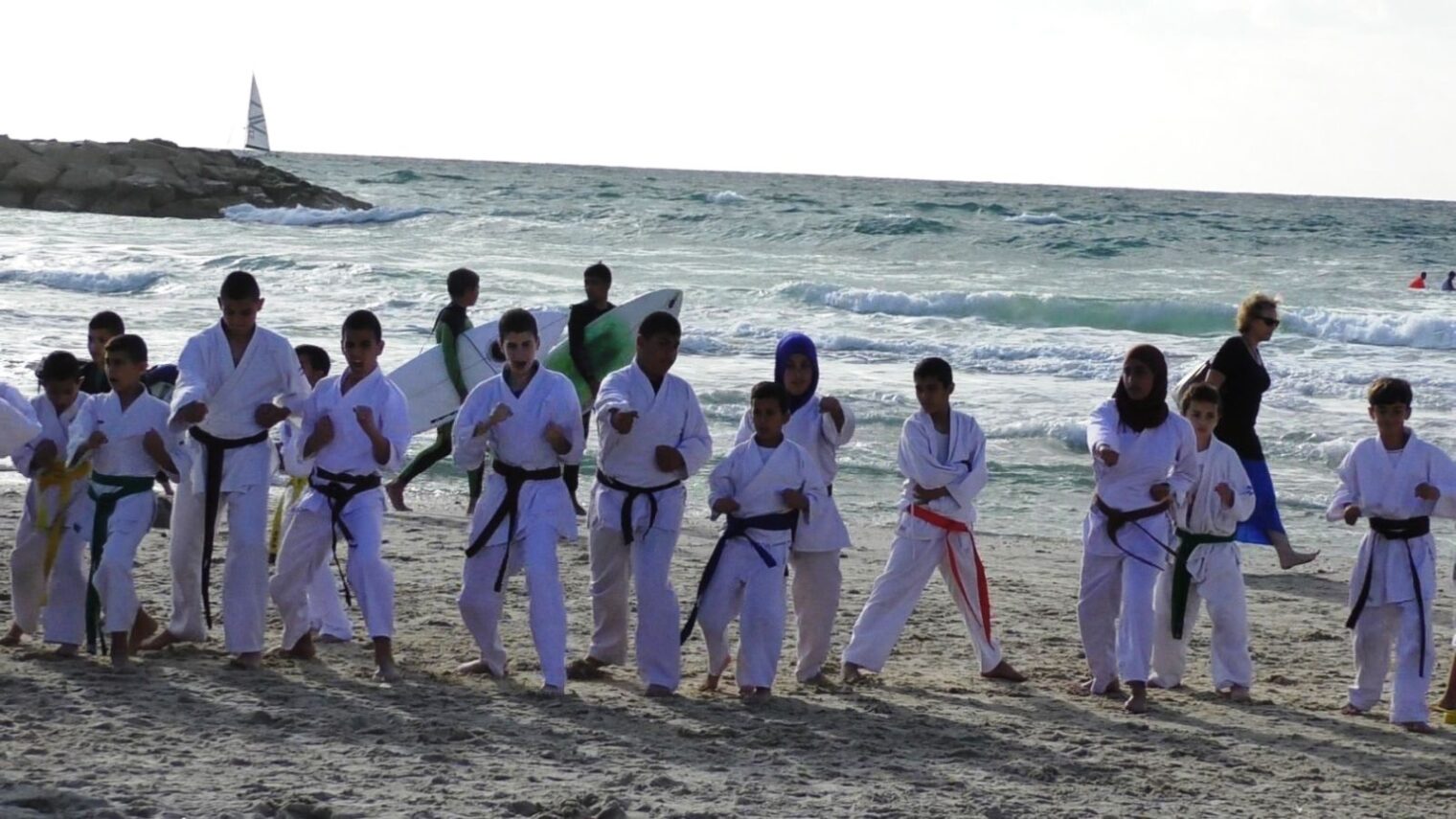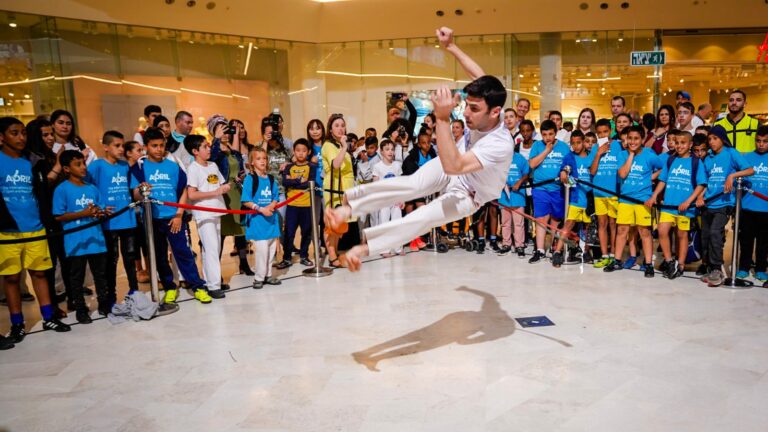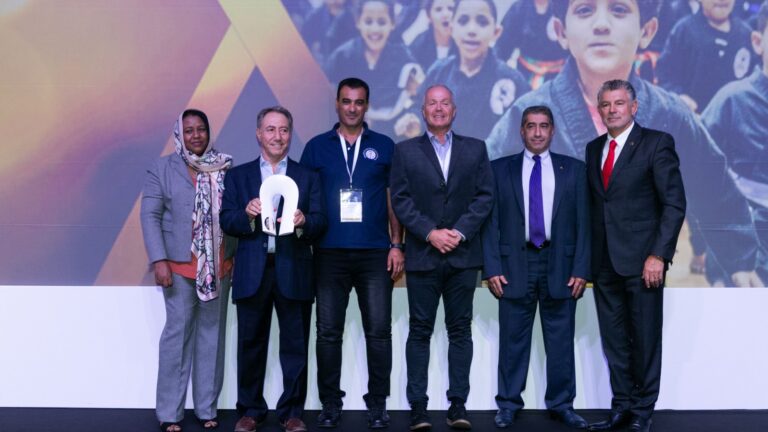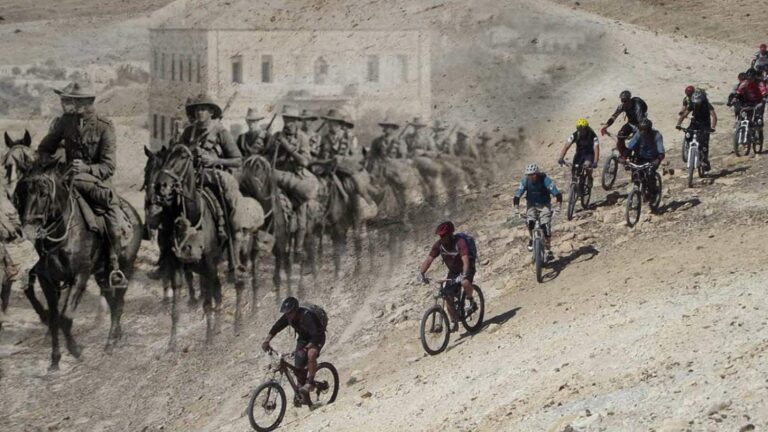In mid May, a small strip of the Mediterranean coast was transformed into an arena of coexistence and fun as the Israeli martial-arts nonprofit organization Budo for Peace hosted its second annual International Martial Arts Friendship Training.
Martial-arts experts from Jordan, Japan and Senegal joined the gathering of Israeli Jews, Muslims, Christians, Druze and Bedouins on the Herzliya beach.
Clubs run by, or affiliated with, Budo for Peace stress budo — universal martial-arts values of self-control, respect, harmony, responsibility, courtesy, integrity, humility, order and tolerance – while using martial arts training as a springboard for tolerance and friendship among children, youth and adults.
Twelve years after its founding, there are 20 Budo for Peace affiliated clubs throughout Israel as well as branches in Jordan and Turkey.
“It’s not as hard you might think. In the martial arts world there are many international organizations and we all meet one another at competitions,” says founder Danny Hakim, a two-time world karate silver medalist for Australia.
Over the past eight years, Israel’s joint Jewish-Arab team has competed in several countries under the Budo for Peace flag.
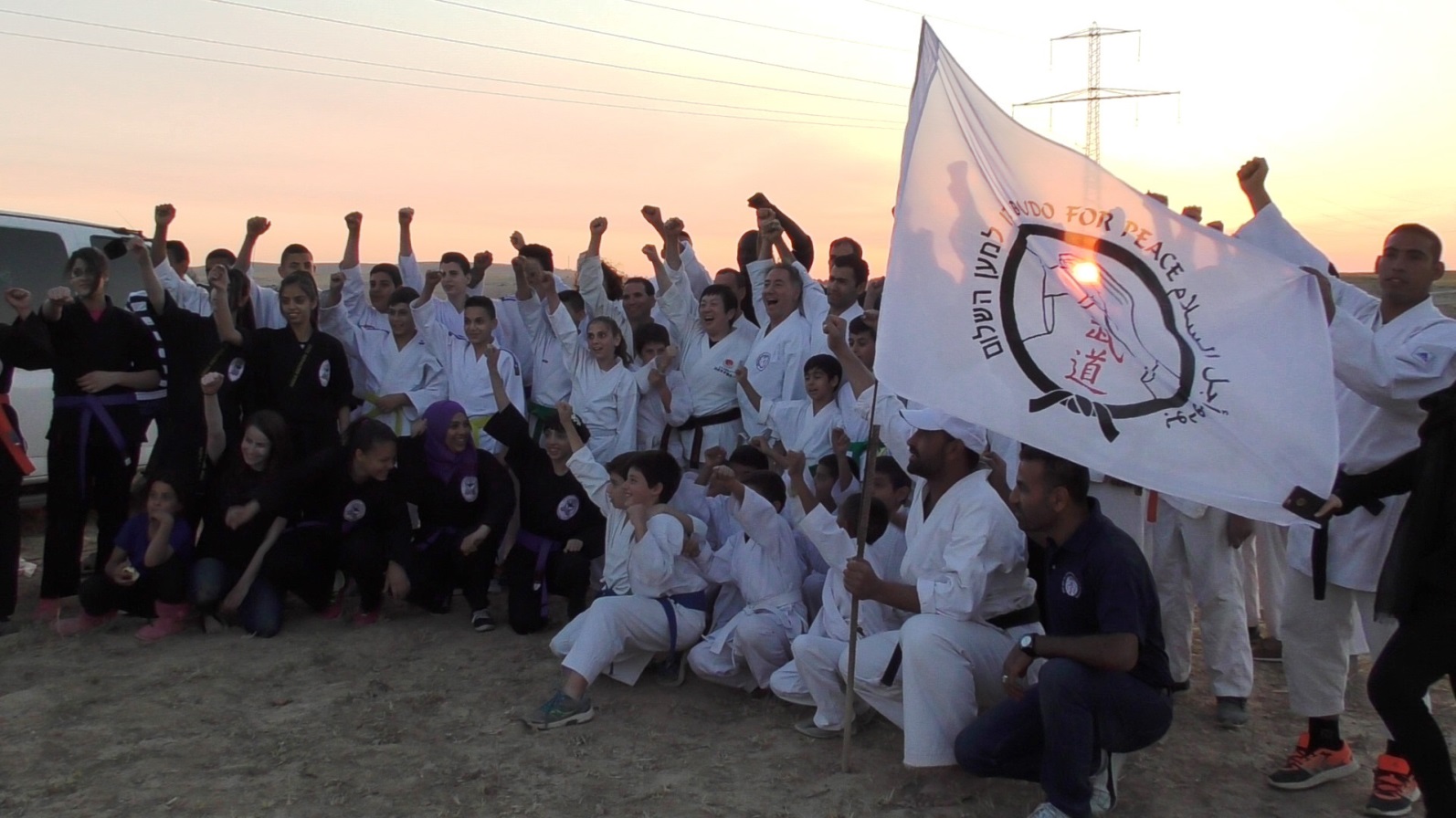
“We are an educational organization, not a karate or judo club. We teach instructors in the already existing network of thousands of martial-arts clubs in Israel to add values education to the usual physical and mental training,” Hakim tells ISRAEL21c.
Clubs from disparate communities often get together for training sessions, and teenage brown- or black-belt mentors participate in leadership training in Hebrew and Arabic. An educational outline in English, Hebrew and Arabic is available to anyone interested in starting a Budo for Peace club.
Building trust
Martial arts such as judo, karate, aikido, kendo, kung fu and taekwondo, says Hakim, are based on a certain philosophy and therefore go beyond the physical contact in most other sports.
“You focus on your opponent and if you don’t create trust it’s dangerous. It’s a personal, intimate relationship. What’s interesting and unique is that when you pair up a Bedouin kid doing a certain style and a Jewish kid doing the same style, they bond because they have the common language.”
At the Budo for Peace event on the North Acadia Beach in Herzliya, Japanese Ambassador to Israel Koji Tomita said budo is not just about being strong and defeating opponents.
“It is a code of a conduct and a way of life,” he said. “Key to this way of life is self-discipline, courtesy and compassion for others. So it is entirely appropriate that Budo for Peace has been trying to empower young people and promote mutual understand between people through Budo.”
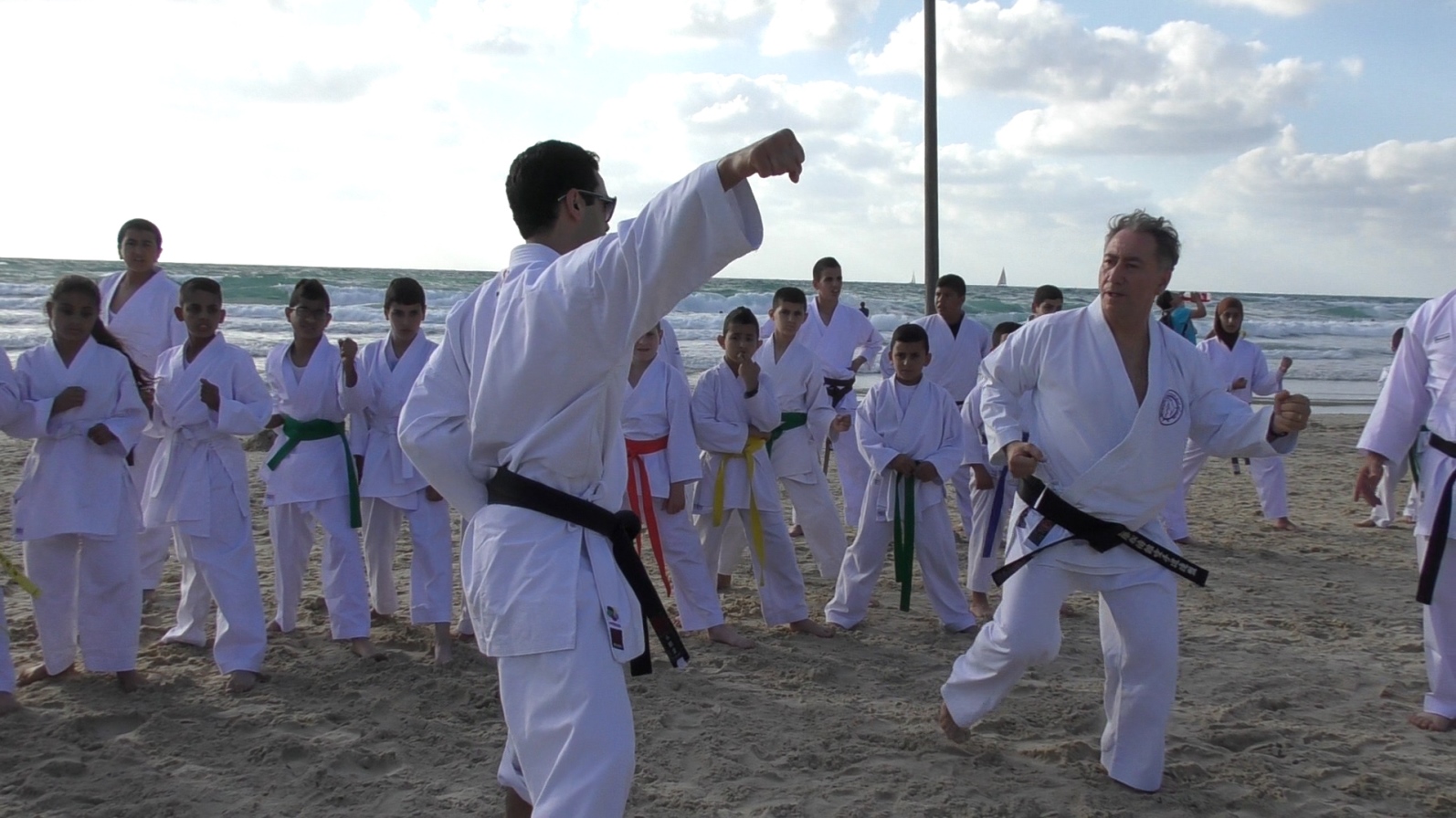
Endorsed by the Martial Arts Federation for World Peace, the Friendship Training was sponsored by Israel’s Ministry of Foreign Affairs, the Herzliya municipality and the Herzliya Tourist Development Company.
The agenda oftraining, master classes and special performances included a public training demo by more than 100 Jewish and Arab children from Budo for Peace clubs in Jisr az-Zarqa, Kiryat Gat, Ra’anana and AbuKweidar.
Additional activities were offered by Israeli and international partners of Alliance for Middle East Peace: Peace Players (basketball), The Equalizer (soccer), Team Up with Tennis, Ultimate Peace (Frisbee), Squashbond (squash), Kayakers for Peace Yuvalim, Surf Lifesaving Herzliya and Kids Kicking Cancer, another martial-arts nonprofit headed by Hakim.
“The sports and peace world is quite big but the different organizations don’t get together,” he says. “This is the first time in Israel they are getting together and exhibiting. Together we can have a greater impact.”
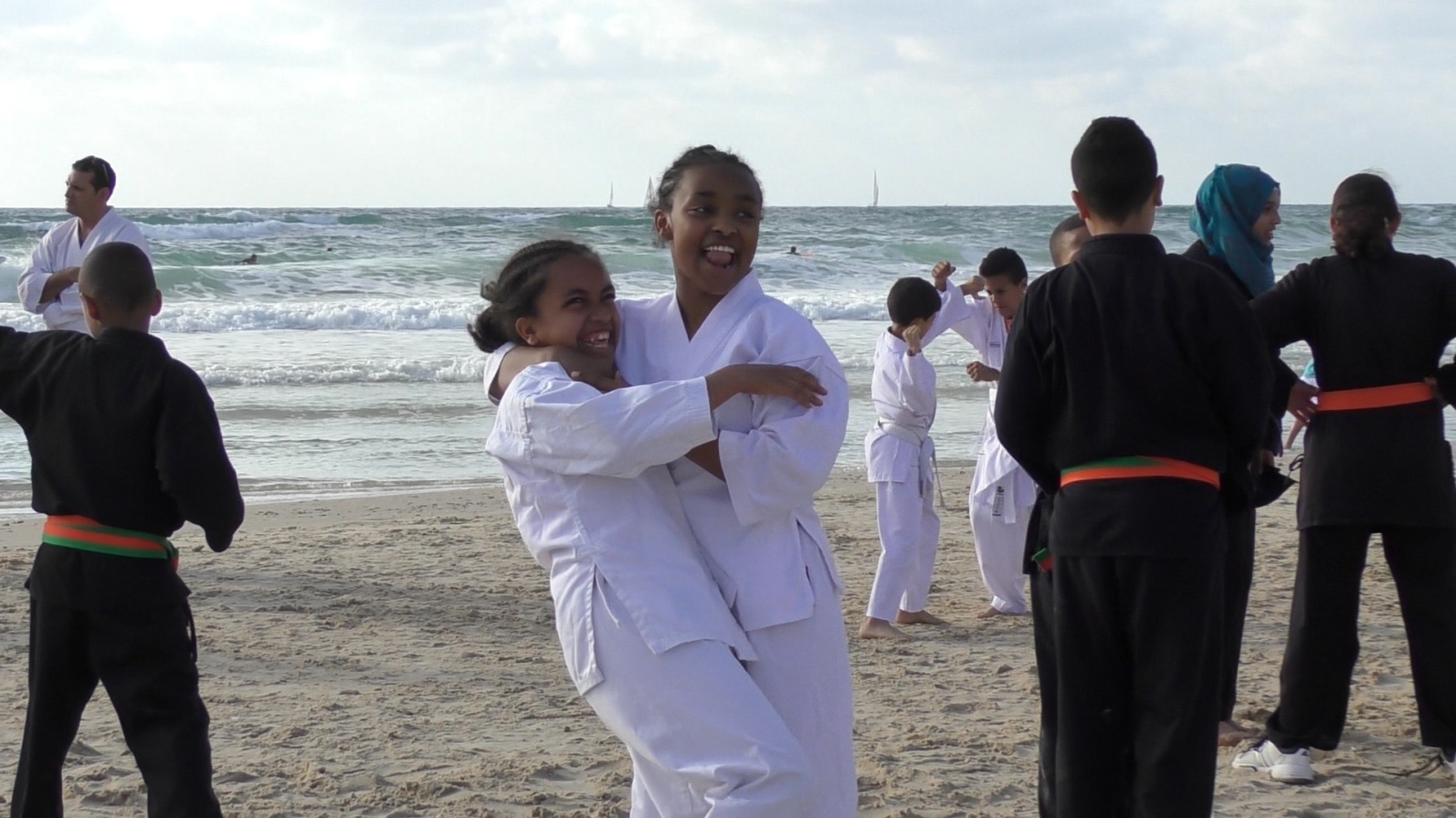
The gathering was followed the next day by an overnight training camp at Budo for Peace’s club in the Negev Desert led by Hakim with Emad Khalil, president of Jordan’s Martial Arts Federation for World Peace and former instructor to the Dubai police and the Royal Family of Dubai; Master Gueye, a Muslim Senegalese taekwondo Olympian and founder of the Mokrad self-defense style; and instructors Mieko and Masakazu Someya from the Japan Karate Association.
“Emad and I both trained in Japan for 10 years but in different clubs and we didn’t meet until my Israeli-Arab contacts introduced us,” says Hakim.
“I invited him to come last May [2015] and meet the Israeli martial-arts community. We had nearly 300 black beltstraining together on the beach, from religious Jews to Bedouins, and it was filmed by Ynet and PBS. He was supposed to come with six students but they didn’t get visas. This time, those six people got their visas, so this year it was really international.”
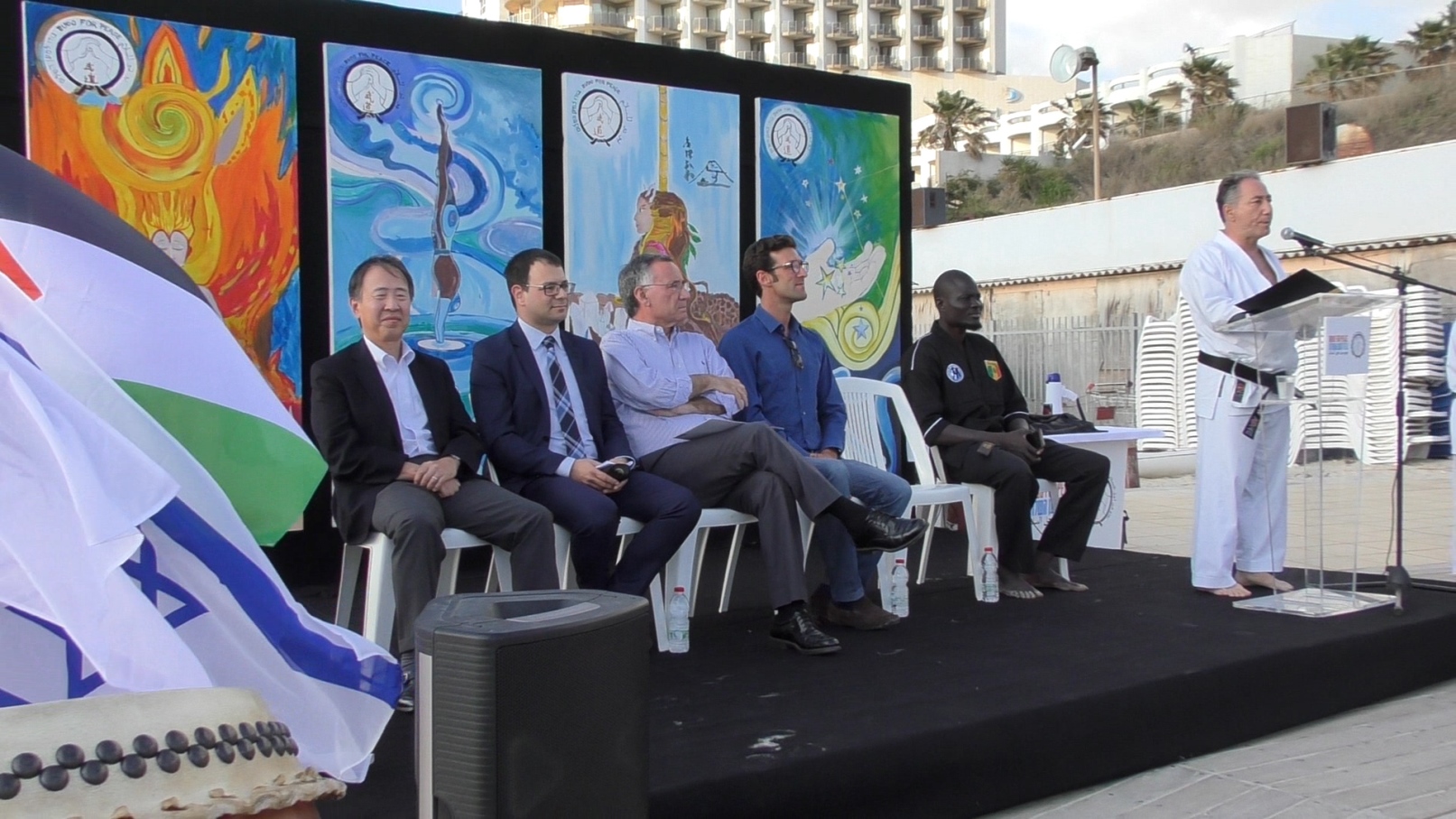
Benny Sharoni from the Foreign Ministry noted in his address: “Governments sign agreements and create the infrastructure for cooperation, but people are the ones who actually make the connections. People are building human bridges through education, sports and the arts. All of these bring Israel closer to its neighbors and closer to its friends around the world.”
For more information on Budo for Peace, click here.




